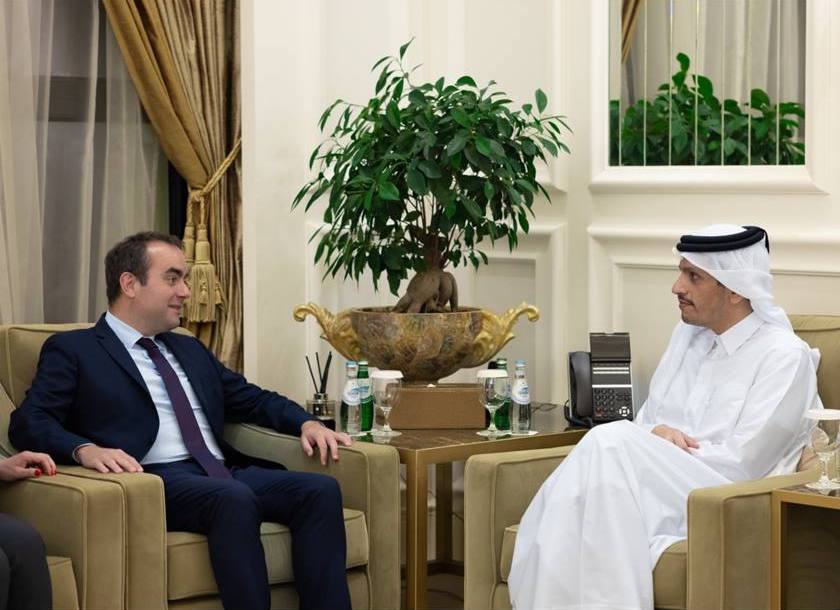Qatar’s Prime Minister and the French Minister of the Armed Forces hold discussions on bolstering bilateral relations and addressing the humanitarian crisis in Gaza.
Qatar’s Prime Minister Sheikh Mohammed bin Abdulrahman Al Thani engaged in high-stakes discussions on Saturday with French Minister of the Armed Forces Sebastien Lecornu during the latter’s official visit to Qatar.
The meeting, held against the backdrop of escalating tensions in the region, addressed the deepening bilateral relations between Doha and Paris, exploring avenues to bolster and advance cooperation.
However, the heart of the dialogue revolved around the alarming humanitarian crisis in the Gaza Strip and the occupied Palestinian territories, brought on by the deadly occupation of Israel.
Both officials deliberated on urgent measures to secure an immediate ceasefire in the enclave, emphasising the necessity for regional and international collaboration.
They also called out the imperative for concerted efforts to secure the release of prisoners and captives, as well as the need for proper access to essential humanitarian aid across the besieged strip.
Qatar, the host of a Hamas political office, has been playing a crucial mediating role to release captives from Hamas and reach a ceasefire in Gaza.
Doha and Cairo had mediated a week-long truce between November 24 and December 1 that led to the release of at least 110 Israeli and foreign captives from Gaza. However, talks have stalled since the truce expired.
Within seven months, Israel has killed at least 34,622 people in Gaza. Israel also forced at least 1.7 million people into displacement, according to the United Nations.
However, Israel’s crimes on the ground have exposed to the international community the occupation’s brutality while prompting several countries to adopt a staunch stance in support of Palestine.
In March, Spain, Ireland, Slovenia and Malta announced plans to recognise Palestine’s statehood in a joint statement.
“We agreed that the only way to achieve lasting peace and stability in the region is through the implementation of a two-state solution, with Israeli and Palestinian States living side-by-side, in peace and security,” read the statement, issued on March 22nd.
The majority of the Latin American region has also doubled down on its criticism of Israel since the beginning of the genocide in Gaza.
On Friday, Turkey said it would suspend all trade with Israel until there was a “permanent ceasefire” in the Strip. This came as the latest international sanction against Israel, which serves as a testament to the mounting global pressure to end the Israeli genocide in the enclave.
On May 1st, Colombia became the latest nation in South America to cut ties with Israel, following Bolivia and Belize early on in the war on Gaza.
Colombia’s president Gustavo Petro announced the country is cutting diplomatic ties with Israel over its war on Gaza. Colombia had already recalled its ambassador.
On November 1st, Bolivia officially cut ties with Israel while Chile and Honduras recalled their ambassadors in Tel Aviv.
Bolivia had already cut ties with Israel in 2009 under the administration of leftist President Evo Morales, who labelled Israel as a “terrorist state.”
Amidst growing international outcry over the escalating death toll in Gaza, Arab nations such as Jordan and Bahrain, key security partners with Israel, opted to recall their ambassadors early in the war as well.







